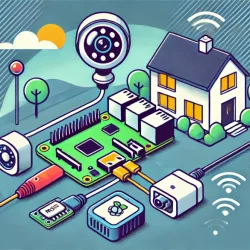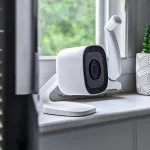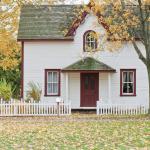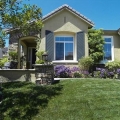Most intruders go in and out of your house the same way you do - through the doors - so all doors in your home should be protected. Keep in mind that you must protect more than just your front and back doors. There is also the sliding door to the patio, the door to the basement from the outside and the door to the house from the garage.
Burglars break windows as a last resort - or by accident. The last thing they want to create is additional noise that draws attention to the property. However, an open window or windows that don’t work properly are an invitation for burglars. There are several methods to consider for increasing the security of your windows.
When a burglar wants to break into a house, time is of the essence. Anything you can do to slow him down will deter him from choosing your house. One of the best methods of deterrence is good locks. Following are some tips for securing your doors and windows.
Remember to allow at least one door or window per room as a fire escape meaning that exit via the door or window can be made quickly and easily.
All exterior doors should be solid-core doors with heavy-duty dead bolts installed in a sturdy frame with long screws so they can't be kicked open.
If you tend to open your door during the day to let in sunlight, consider installing a storm door with a lock to let the sunlight in but keep burglars out.
Place security bars over your basement windows and around your home's removable AC units to prevent intruders from crawling inside.
Apply window film to make your glass shatterproof. Tinted film can further prevent thieves from window-shopping and even block out UV rays so furniture won't be damaged by the sun.
Consider replacing glass doors, or install window film and metal security grills on the doors. • Replace or repair any broken windows as soon as possible.
Use curtains or blinds over any windows or doors that are easy to see into.
A peephole allows you to see who is at your door without having to open it and without them looking into your home.
Keep expensive equipment and items away from your windows.
Make sure skylights and roof-access areas are properly secured with heavy-duty hardware.
Install locks or secondary security devices on all accessible windows so they can't be opened far enough for someone to crawl through from the outside.
You can limit access to your home and omit keys by getting the latest technology with fingerprint locks.
Install dead bolts with captive key locks on all doors located next to windows. These locks have removable thumb latches so that even if a thief breaks a window, he still can't reach around and unlock the door. But because dead bolts can also be a fire hazard, make sure they have a removable key on the inside cylinder for when you are home. When you leave, just remove the key and keep the lock bolted on both sides.
Always lock up all doors and windows including second-floor windows even if you're only going out for a few minutes.
A door that locks from the inside is great but it needs to lock on the outside as well.
A chain lock allows you to talk to someone outside your door without opening it all the way.
If you have the same key for all your locks, have one door re-keyed and use that key to give to contractors or visitors. If the key is lost, you will only have to change one lock on your house.
When you move into a house or apartment, have the locks re-keyed. There's no telling who the previous residents may have given a spare key to or whether they kept one themselves.
To avoid being locked out of your house, secure a spare key in a combination or key lockbox on your property or leave one with a trusted neighbor.
Original locks may look quaint, but they are nearly always unsafe. Modern locks can be refitted while keeping the original integrity of the house.
Keypads are a good alternative to traditional locks in homes that are occupied or accessed by many people.
Combination keyless locks are a great way to keep certain rooms off limits to anyone but those with the code.
Be careful who you give your alarm codes and keys to; some alarms now allow you to give each individual their own code so as to monitor their use.
The deadbolt locks on your doors should have high security features such as interlocking chassis and full one-inch throws.
Use security bars for added security on sliding patio doors and entry doors.
Install automatic openers on garage doors or bolt-type locks on each end of the garage doors.
Make sure padlocks are highly weather-resistant.
Always lock gate, garage, shed and storage warehouse doors.
Install additional window locks especially on all windows that are accessible from the ground.
Install impact resistant glass in all basement windows as they are often used as an access point.
Hilary Basile is a writer for http://www.myguidesusa.com. The MyGuidesUSA.com network of sites is the ultimate guide to the USA. Find home improvement resources, including home security tips, at http://www.myguidesusa.com/homeimprovement.




